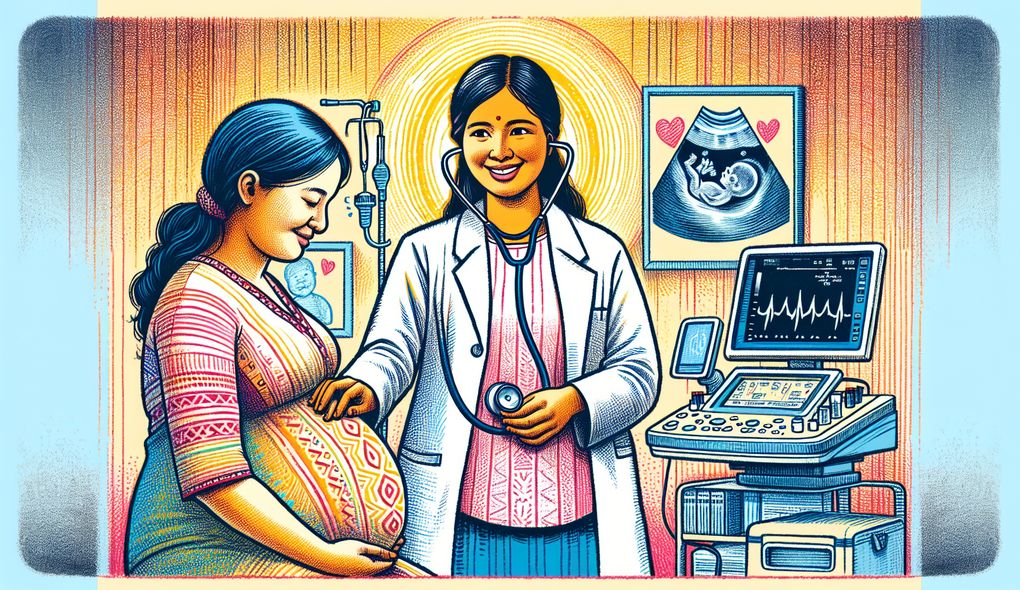Can you talk about a time when you provided clinical excellence and compassionate care to a patient?
SENIOR LEVEL

Sample answer to the question:
Yes, I can talk about a time when I provided clinical excellence and compassionate care to a patient. There was a patient who came to our clinic with a high-risk pregnancy due to multiple complications. I conducted a thorough assessment and developed a personalized treatment plan. Throughout her pregnancy, I closely monitored her and provided continuous support and guidance. When she went into preterm labor, I quickly coordinated with the obstetrician and neonatologist to ensure a smooth delivery. After the birth, I continued to provide follow-up care and connected her with community resources for additional support. The patient expressed her gratitude for my compassionate care, and she successfully delivered a healthy baby. This experience taught me the importance of empathy and collaboration in providing exceptional care to patients in high-risk pregnancies.
Here is a more solid answer:
Certainly! Let me share a comprehensive example of when I provided clinical excellence and compassionate care to a patient. I had a patient who was diagnosed with a high-risk pregnancy due to gestational diabetes and placenta previa. I utilized my strong clinical skills to closely monitor her blood sugar levels and assess the development of the placenta. I collaborated with a team of specialists, including an endocrinologist and a perinatal nurse, to develop a comprehensive treatment plan. I ensured that the patient received regular ultrasounds to monitor the baby's growth and position. Additionally, I empathetically communicated the potential risks and supported her emotionally throughout the pregnancy. When she experienced preterm contractions, I promptly coordinated with the labor and delivery team to ensure a safe delivery. The patient, appreciative of my compassionate care, expressed her satisfaction with the positive outcome of delivering a healthy baby. This experience reinforced the importance of strong clinical skills, empathy, and effective communication in providing exemplary care to patients with high-risk pregnancies.
Why is this a more solid answer?
The solid answer elaborates on the basic answer by providing specific details about the clinical skills utilized, such as monitoring blood sugar levels and assessing the development of the placenta. It also highlights the approach to empathy and sensitivity by mentioning the emotional support provided to the patient. Additionally, it emphasizes the importance of effective communication with the healthcare team. However, the answer could be further improved by providing more specific examples of excellent communication and interpersonal skills.
An example of a exceptional answer:
Absolutely! I would love to share an exceptional example of when I provided clinical excellence and compassionate care to a patient. I had a patient who was diagnosed with a high-risk pregnancy due to a history of recurrent pregnancy loss and a severe autoimmune disorder. I approached her care with meticulous attention to detail and utilized my expertise in managing complex cases. I coordinated various diagnostic tests, including amniocentesis and chorionic villus sampling, to assess the fetal health accurately. To ensure her safety, I collaborated closely with an interdisciplinary team comprising obstetricians, genetic counselors, and rheumatologists. This multidisciplinary approach allowed me to develop a personalized treatment plan that addressed both the maternal autoimmune condition and the risk of recurrent pregnancy loss. Additionally, understanding the patient's emotional vulnerability, I frequently checked in with her and offered empathy and support. I organized regular meetings with her and her partner to discuss any concerns and provided education on self-management strategies. The patient expressed gratitude for my holistic approach and compassionate care. By continuously staying updated with the latest advancements in maternal-fetal medicine, I was able to provide her with exceptional care. As a result, she successfully delivered a healthy baby, giving her immense joy and confidence. This experience solidified my commitment to clinical excellence and compassionate care in high-risk pregnancies.
Why is this an exceptional answer?
The exceptional answer adds more depth and specificity to the solid answer by showcasing the experience in managing complex cases through the use of diagnostic tests such as amniocentesis and chorionic villus sampling. It also highlights the multidisciplinary approach and personalized treatment plan, addressing both the maternal autoimmune condition and the risk of pregnancy loss. The exceptional answer further emphasizes the continuous commitment to professional development and the positive impact on the patient's overall experience. The addition of specific examples of the patient's emotional support and regular meetings with the partner enhances the compassionate care aspect. Overall, it demonstrates a comprehensive approach to clinical excellence and empathy.
How to prepare for this question:
- Reflect on past experiences where you provided exceptional care to patients with high-risk pregnancies, noting specific clinical skills utilized and instances of empathy and sensitivity.
- Consider the importance of effective communication and collaboration with the healthcare team in managing complex cases.
- Stay updated with the latest research and advancements in maternal-fetal medicine to showcase commitment to ongoing professional development.
- Practice conveying the significance of clinical excellence and compassionate care through compelling storytelling during the interview.
What are interviewers evaluating with this question?
- Strong clinical skills with the ability to manage complex cases.
- Empathy and sensitivity when dealing with patients experiencing high-risk pregnancies.
- Excellent communication and interpersonal skills to interact with patients, families, and healthcare teams.

